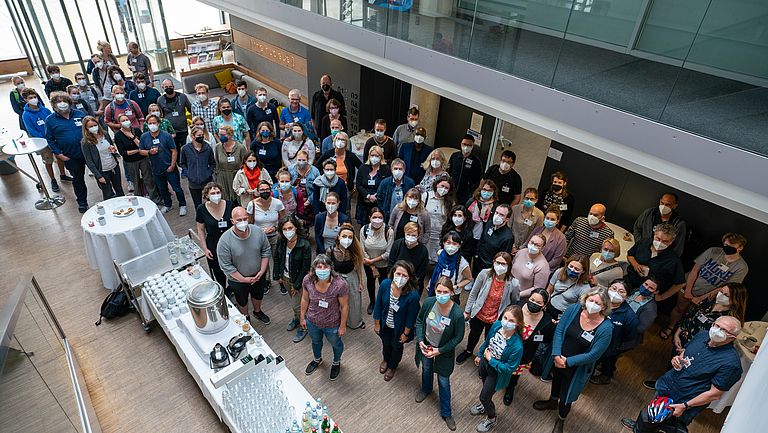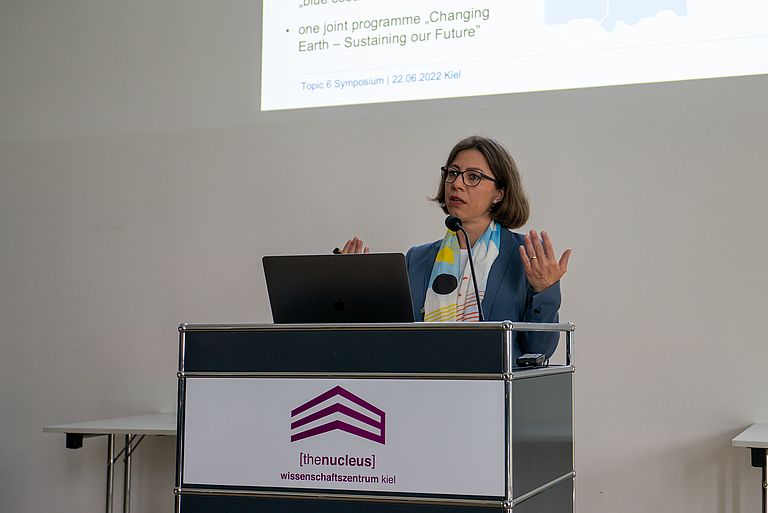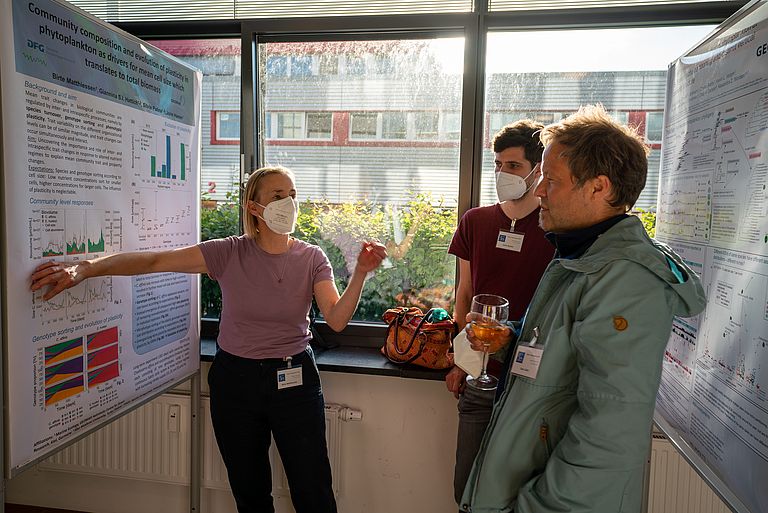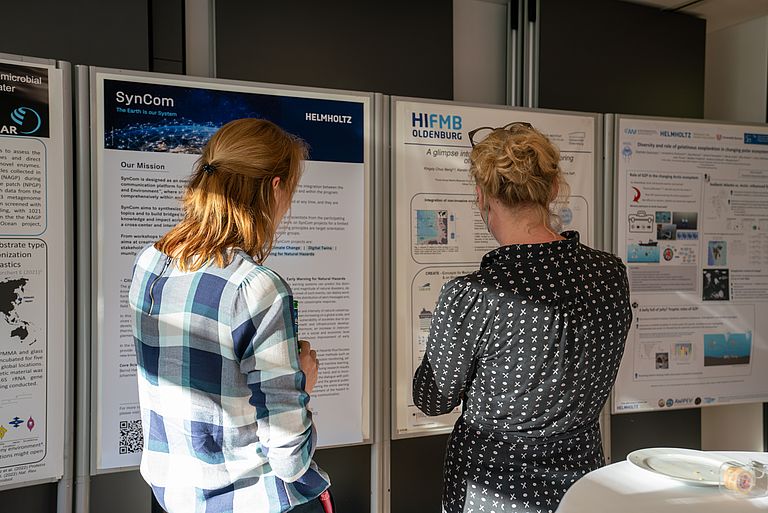Topic 6 annual meeting focuses on networking
Symposium of the Helmholtz PoF IV research program works on comprehensive understanding of the ocean ecosystem
Within the framework of the program "Changing Earth - Sustaining our Future" of the so-called "Project-oriented Funding of the Helmholtz Association" (PoF), seven Helmholtz Centres are researching the natural environment - from the land surface to the oceans to the remotest polar regions. GEOMAR Helmholtz Centre for Ocean Research Kiel leads Topic 6: "Marine and Polar Life". Complex interactions in the marine ecosystem are investigated in detail. The main partners in Topic 6 include the Alfred Wegener Institute Helmholtz Centre for Polar and Marine Research (AWI) and the Helmholtz Institute for Functional Marine Biodiversity at the University of Oldenburg (HIFMB). While the AWI concentrates on the polar regions and questions concerning the North Sea, GEOMAR focuses on the mid- and low-latitude regions as well as the deep sea. The HIFMB uses an interdisciplinary approach to investigate marine biodiversity and its significance for the function of marine ecosystems.
"We want to promote the exchange between researchers from the three Helmholtz Centres and Institutes involved, GEOMAR, AWI and HIFMB, with regular meetings and get to know each other's locations better," explains Prof. Dr. Ute Hentschel Humeida, speaker of this topic. Dr. Beate Slaby, coordinator of Topic 6, adds: "A meeting in person after two years of a pandemic is explicitly welcomed by many of the participants."
Dr. Mirjam Langhans, research coordinator for the Research Field Earth and Environment of the Helmholtz association and acting spokesperson for the office for Synthesis and Communication (SynCom), was present as invited guest. It is the mission of the research program „Changing Earth – Sustaining our Future” to gain a holistic understanding of the Earth system and the dynamics, feedbacks and interactions of its components, and to provide actionable knowledge that can be used for a transformation towards a sustainable management of planet Earth. Examples of the research in Topic 6 range from biogeochemical cycles over microplastics to disposed ordnance in the Baltic Sea.
On the first day, the four subtopics of Topic 6 presented their current research results: After presentations on future ecosystem functioning, i.e. the future ecosystem services that an ecosystem can provide despite the negative influence of human-induced climate change, adaptation strategies of the animal and plant kingdom were highlighted from gene to ecosystem level. Another focus was on strategies for future marine governance. Marine governance is an interdisciplinary field of research that deals with the management of the seas and oceans, beyond national borders. Large areas of the sea exist beyond the boundaries of national control and jurisdiction, but what happens at sea is not detached from people and places on land. Therefore, global agreements are needed to deal with this situation. The last block of presentations revolved around human use of the ocean and its consequences for marine ecosystems.
The invited speaker Dr. Mathias Wegner, Deputy Head of the Department of Coastal Ecology at AWI and researcher in Topic 4 “Coastal Systems” addressed the costs, but also possible benefits of invasive species in coastal ecosystems in his presentation. The relations between adventive oysters and mussels and their parasites are complex and who benefits or harms who when and how, and whether that is good or bad in total for the whole ecosystem cannot be answered unambiguously. The conference day was topped off with a poster session and lively discussions.
The second day was opened by GEOMAR Director and Vice President of the Research Field Earth and Environment, Prof. Dr. Katja Matthes. "The new PoF program of the research field "Changing Earth - Sustaining our Future" is very innovative. Since we have one Earth system, it is just the right idea to work together with the six other Centres in one joint program. Of course, it is a challenge to work together with so many scientists. That makes face-to-face meetings all the more important. I am particularly happy to be able to welcome so many young scientists in Kiel. Young researchers are a central part of the program. We need bright minds and new ideas to tackle the challenges of the future," the director emphasised.
This day was dedicated to planning of future research. In eight groups, selected topics were discussed in smaller rounds, joint project ideas were developed and possible areas of need were identified. In a group led by Ulrike Bernitt (GEOMAR) and Dr. Barbara Neumann as an invited representative of the Institute for Advanced Sustainability Studies (IASS Potsdam), the different aspects but also the urgency of knowledge transfer were highlighted. The transfer activities in Topic 6 are manifold. They range from policy advice, to public relations work, to the creative linking of science and artwork at exhibitions. In the concluding plenary session, responsibility for the next symposium was ceremonially transferred to the Alfred Wegener Institute. The meetings are to be held annually on a rotating basis at the participating centres. Prof. Dr Gunnar Gerdts (AWI) accepted the relay baton on behalf of Topic 6 co-spokesperson Prof. Dr Bettina Meyer (AWI).






